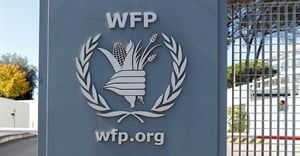Economic crisis exposes fragile global food system
The combination of the food and economic crises have pushed more people into hunger, with the number of hungry expected to top one billion this year, according to the Food and Agriculture Organisation (FAO).
The agency, along with the World Food Programme (WFP), said in The State of Food Insecurity Report that nearly all of the world's undernourished live in developing countries.
Even before the onset of the current crises, the number of hungry has been growing slowly and steadily over the past decade, it noted.
Strides in improving access to food were made in the 1980s and early 1990s, thanks to stepped up agricultural investment after the global food crisis of the early 1970s. However, official development assistance (ODA) fell between 1995-1997 and 2004-2006, resulting in surges in the number of undernourished in most regions.
The increase in the number of the world's hungry in times of both low prices and economic prosperity as well as periods of price spikes and recessions shows how weak the global food security governance system is, according to FAO.
"World leaders have reacted forcefully to the financial and economic crisis and succeeded in mobilising billions of dollars in a short time period," said Jacques Diouf, the agency's director-general. "The same strong action is needed now to combat hunger and poverty."
The world has the economic and technical know-how to eradicate hunger, but the political will is missing, he stressed.
"Investing in agriculture in developing countries is key as a healthy agricultural sector is essential not only to overcome hunger and poverty, but also to ensure overall economic growth and peace and stability in the world."
For her part, Josette Sheeran, executive director of WFP, said that speedy action is crucial to address food insecurity.
"At a time when there are more hungry people in the world than ever before, there is less food aid than we have seen in living memory. We know what is needed to meet urgent hunger needs - we just need the resources and the international commitment to do the job."
This comes ahead of World Food Day which aims to heighten public awareness of the world food problem and strengthen solidarity in the struggle against hunger, malnutrition and poverty.
This year's theme is "Achieving Food Security in Times of Crisis."
In South Africa the national event will be held in the impoverished deep rural village of Muyexe, in Limpopo.
The event on Friday, 16 October 2009 is being organised by the Department of Agriculture, Forestry and Fisheries, Limpopo Department of Agriculture in partnership with FAO.
Article published courtesy of BuaNews










